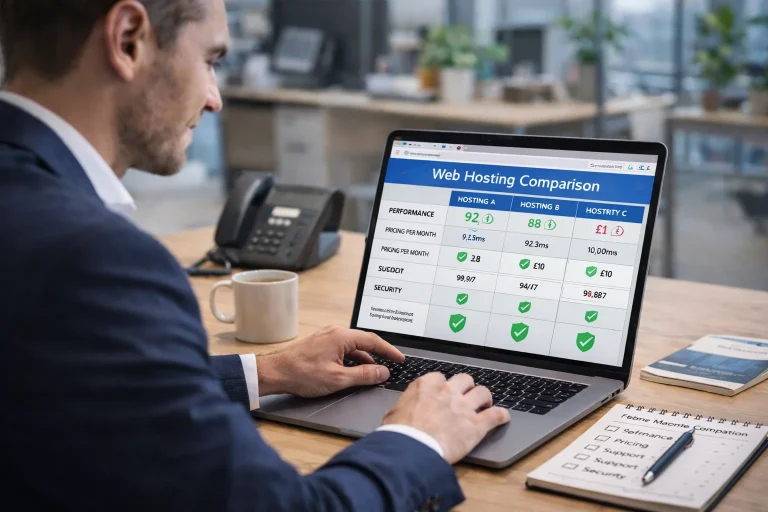Navigating the financial landscape of starting or scaling a business in the UK can be daunting, but government grants for small business present a vital opportunity.
These non-repayable funds are offered to foster innovation, drive economic growth, and create jobs across the country. Unlike loans, grants do not accumulate interest or require repayment, making them an attractive funding avenue for entrepreneurs like you.
From cash awards to subsidised equipment, there are hundreds of grant options tailored for various business sectors, sizes, and locations. This guide walks you through everything you need to know to access, apply for, and benefit from small business grants in the UK.
What Are Government Grants?

Government grants are non-repayable financial awards issued by public sector bodies to businesses with a specific purpose. These may be aimed at encouraging regional development, funding innovation, or supporting startups in high-growth sectors.
Unlike loans or investments, grants do not require repayment or the surrender of equity, making them particularly appealing for early-stage businesses.
You may encounter several types of grants, including direct grants, which offer cash to cover project costs, and resource-based grants, which provide support through equipment, training, or mentorship.
These grants are often tied to performance metrics or conditions, such as creating jobs or reducing carbon emissions. Whether you’re launching a new venture or expanding operations, understanding the types of grants available is the first step to accessing government support.
How Government Grants Benefit Small Businesses in the UK?
For small businesses, grants can be a game-changer. They reduce financial pressure and allow entrepreneurs like you to focus on growth, innovation, and market expansion.
Because grants don’t need to be repaid, they enable more risk-taking, especially in areas like research and development. Government funding helps level the playing field for startups and SMEs by providing access to resources often limited to larger firms.
Whether it’s subsidising the cost of new equipment or offsetting training expenses, grants can significantly lower operational costs. They also increase your business’s credibility, which can attract future investors or lenders. In a competitive market, these financial injections not only boost your cash flow but also position your business for long-term sustainability and success.
Why Are Government Grants Crucial for Startups and SMEs?

For startups and small businesses, access to funding is often a major hurdle. Government grants offer a powerful solution, providing financial support without the need for repayment. But beyond the money, they bring broader value that can significantly influence a business’s trajectory.
Key Reasons Government Grants Matter
- Encourage Innovation: Many grants are designed to support research, development, and the adoption of new technologies.
- Boost Regional Growth: Specific programmes target businesses in underserved or economically disadvantaged areas.
- Promote Job Creation: Grants often reward businesses that hire local workers or create new employment opportunities.
- Bridge Early-Stage Gaps: Startups commonly experience cash flow issues, and grants help smooth this challenging phase.
Receiving a grant can also boost credibility, showing that your business aligns with government priorities like sustainability or digital transformation. On top of that, many grants come with extras like expert mentoring, networking opportunities, and strategic guidance.
Ultimately, for SMEs looking to scale or establish credibility, government grants can be a game-changing launchpad for long-term success.
What Are the Available Government Grants for Small Business?
Across the UK, there are over 100 government grants available to support small businesses at different stages of development. These grants vary in purpose, region, and accessibility, some are sector-specific while others are open to all types of SMEs.
While the application process can sometimes be rigorous, several grants are known for being relatively easy to apply for and offer quicker decision-making compared to more complex schemes.
Below is a curated list of quick-access government grants and funding programmes that small business owners should consider:
1. Start Up Loans Scheme

The Start Up Loans Scheme is a government-backed initiative from the British Business Bank aimed at helping new entrepreneurs access funding.
It provides affordable personal loans specifically for business use, paired with free mentoring support. Designed for early-stage businesses, it’s one of the most accessible financial resources for startups in the UK.
Key Benefits:
- Borrow up to £25,000 per applicant (with potential to reach £100,000 for group applicants).
- Fixed 6% interest rate with no early repayment fees.
- Repayment term options range from 1 to 5 years.
- Includes 12 months of free business mentoring.
- No need for business history or collateral to apply.
Ideal For:
- Individuals aged 18+ starting their first business venture.
- Founders need funding for equipment, stock, marketing, or setup costs.
- Applicants who want guidance and mentorship alongside funding.
- Small business owners within the first 3 years of trading.
This scheme offers more than money, it delivers structured support to help new business owners get off to a confident start in a competitive market.
2. Prince’s Trust Enterprise Programme

The Prince’s Trust Enterprise Programme supports young people aged 18 to 30 who want to turn business ideas into reality.
It offers a blend of funding, training, and mentoring to build confidence and business acumen. The programme is ideal for those who are unemployed, underemployed, or facing barriers to traditional business funding.
Key Benefits:
- Access to start-up grants or low-interest loans (up to £5,000).
- Free business training workshops and courses.
- One-to-one mentorship from experienced professionals.
- Guidance on writing business plans and financial forecasts.
- Support in building confidence and presentation skills.
Ideal For:
- Young individuals (18–30) with a business idea but limited experience.
- People facing unemployment, low income, or disability.
- Aspiring entrepreneurs who need financial and educational support.
- First-time business owners with no access to traditional loans.
This programme makes entrepreneurship more inclusive, helping young people take the leap with guidance, funding, and a strong support system.
3. Innovate UK Smart Grants

Innovate UK Smart Grants are designed to fund groundbreaking research and development projects that have strong commercial potential.
These grants support businesses working on novel innovations in science, technology, or engineering. It’s a competitive scheme but offers valuable backing for businesses ready to scale up innovation.
Key Benefits:
- Funding starting from £25,000, with no upper cap for large-scale projects.
- Supports feasibility studies, prototyping, and proof of concept.
- Open year-round with multiple funding rounds annually.
- Backed by UK Research and Innovation (UKRI).
- Helps cover R&D costs without equity dilution.
Ideal For:
- Tech-driven or science-based startups and SMEs.
- Companies with disruptive innovations and commercial goals.
- Businesses working on early-stage research or new product development.
- Teams seeking non-dilutive funding to test or launch products.
This grant is a powerful way to fuel breakthrough ideas and take innovative projects from concept to market.
4. Electric Vehicle Infrastructure Grant

This grant supports small and medium-sized businesses in installing electric vehicle chargepoints at their workplace.
It’s a part of the UK’s push for greener transport and offers quick access to funding through approved installers. The initiative makes it easier for businesses to embrace electric mobility.
Key Benefits:
- Funding of up to £15,000 per business.
- Covers infrastructure and installation costs.
- Streamlined process via OZEV-approved installers.
- Helps businesses reduce their carbon footprint.
- Supports the UK’s net-zero transition.
Ideal For:
- SMEs are looking to install EV chargepoints at their premises.
- Businesses with fleet electrification plans.
- Companies are promoting green commuting for staff.
- Premises in ownership or long-term lease.
With quick processing and easy access, this grant is perfect for SMEs ready to lead the electric vehicle revolution.
5. Boiler Upgrade Scheme

The Boiler Upgrade Scheme helps businesses switch from fossil fuel-based systems to low-carbon heat pumps. It supports the UK’s environmental goals and can significantly lower energy bills. The grant is directly applied by installers, making the process seamless.
Key Benefits:
- Grant of up to £7,500 for heat pump installations.
- Targets existing buildings, not new builds.
- Applied through certified installers.
- Reduces long-term heating costs.
- Encourages sustainable energy usage.
Ideal For:
- Businesses with older heating systems.
- Companies are aiming to be environmentally responsible.
- Properties located in England or Wales.
- Organisations are looking to cut carbon emissions.
It’s a smart move for businesses looking to go green while benefiting from government-backed financial help.
6. Local Enterprise Partnerships (LEPs) Growth Grants

Local Enterprise Partnerships offer region-specific grants to boost business growth and innovation. These funds typically support small upgrades that can make a big impact, such as equipment, IT systems, or employee training. It’s a highly localised and accessible funding stream.
Key Benefits:
- Grants usually range from £1,000 to £25,000.
- Supports productivity improvements and digitisation.
- Simple applications with short review periods.
- Often comes with advisory support.
- Regional focus ensures local economic alignment.
Ideal For:
- SMEs are planning modest capital investments.
- Businesses in need of digital transformation.
- Projects that promise job creation or growth.
- Companies seeking co-investment opportunities.
LEP grants are a quick and practical way for businesses to improve operations and drive regional success.
7. Woodland Creation Planning Grant

This grant encourages landowners and land-based businesses to plan for new woodlands in England. It supports costs involved in surveys, consultancy, and woodland design. It’s a step toward both environmental stewardship and future land-use funding.
Key Benefits:
- Offers up to £30,500 in funding.
- Covers site surveys, legal fees, and professional advice.
- Available to private and public landowners.
- Prepares the way for additional woodland creation grants.
- Supports carbon capture and biodiversity.
Ideal For:
- Agricultural and land-based businesses.
- Organisations are aiming to enhance their environmental impact.
- Landowners preparing for DEFRA sustainability programmes.
- Estates interested in long-term woodland management.
It’s a future-focused grant ideal for those looking to merge sustainability with land development.
8. Community and Environment Fund (CEF)

The CEF helps businesses and organisations in areas affected by HS2 construction. It funds community or environmental projects that improve local quality of life. The fund is fast-tracked in eligible locations to help offset disruption.
Key Benefits:
- Awards up to £250,000 per project.
- Focus on green upgrades and community resilience.
- Easy access for HS2-impacted areas.
- Run by Groundwork UK with local support.
- Encourages collaborative projects with lasting impact.
Ideal For:
- Businesses near HS2 zones with local engagement goals.
- Companies are planning green infrastructure or improvements.
- Partnerships with community groups or councils.
- Projects that benefit the environment or well-being.
This fund enables businesses to give back and strengthen community ties during large-scale development.
9. Local Council Recovery Grants

These grants are issued by local authorities to help small businesses bounce back from economic hardship. Whether due to COVID-19, natural events, or sudden downturns, they offer fast financial relief. Grant sizes and eligibility vary by region.
Key Benefits:
- Typically cover rent, utilities, or operational costs.
- Fast approval in 1–3 weeks.
- Often requires minimal paperwork.
- Grants are non-repayable.
- Helps maintain business continuity.
Ideal For:
- Businesses are recovering from the pandemic or regional disruptions.
- SMEs need short-term financial lifelines.
- Local traders and storefronts are under rental strain.
- Companies are trying to retain staff and services.
This funding acts as a timely safety net to stabilise operations and avoid closure during turbulent periods.
10. Made Smarter Innovation Programme

The Made Smarter Innovation Programme supports UK manufacturing and industrial businesses in adopting advanced digital technology. It funds projects that implement automation, AI, data-driven manufacturing, and more. It’s a key part of the UK’s push toward Industry 4.0.
Key Benefits:
- Co-funding for digital transformation projects.
- Grants available for AI, IoT, robotics, and big data.
- Access to innovation hubs and expert support.
- Helps reduce operational costs and improve efficiency.
- Aligns with net-zero and productivity goals.
Ideal For:
- Manufacturers are embracing digital or smart tech.
- SMEs are ready for technological transformation.
- Companies are working on supply chain innovation.
- Projects focused on automation and intelligent systems.
Aimed at forward-thinking businesses, this grant helps traditional industries step confidently into the future.
Who Is Eligible for a Small Business Grant?
Eligibility for government grants varies by scheme, but generally, you’ll need to meet a combination of business-specific and project-specific criteria.
Business Grants Eligibility
- Business Type: Whether you’re a sole trader, partnership, limited company, or social enterprise can affect your options.
- Size of Business: Most grants target micro, small, or medium-sized enterprises (SMEs), often defined by employee count or turnover.
- Sector: Some grants are sector-specific, focusing on innovation, sustainability, technology, or community regeneration.
- Geography: Regional funding is common. You may only qualify for certain schemes if based in designated areas like the Midlands or North East.
- Purpose of Grant: Projects must typically align with the grant’s goals, such as job creation, R&D, or environmental improvements.
Additionally, most grants come with expectations like co-investment (match funding) or compliance with legal and financial standards. It’s crucial to carefully read the application criteria and consider speaking with the funding body before submitting your proposal.
Having a clear project, measurable outcomes, and a strong financial plan increases your chances of approval.
How Can You Apply for Government Business Grants?

Applying for a government grant involves preparation, clarity, and strategic alignment with the grant’s objectives.
Steps to Apply for the Grants
- Identify the right scheme: Use tools like the Business Finance Support Finder to match your business to available opportunities.
- Understand the objectives: Tailor your application to show how your business meets the grant’s goals.
- Prepare documentation: Common requirements include a detailed business plan, financial projections, and proof of identity.
- Demonstrate impact: Clearly articulate how the funds will benefit your business and broader community or sector.
- Check deadlines and funding windows: Some grants are time-sensitive or released in funding rounds.
Additional tips:
- Contact the funding body early to clarify any questions.
- Ensure your proposal is specific, outcome-driven, and realistic.
- Always keep a backup plan, grant funding is competitive.
A well-prepared application doesn’t guarantee success, but it does significantly increase your chances. Consistency, clarity, and attention to detail are key.
How Can You Improve Your Chances of Securing a Grant?
Getting a grant can be competitive, but a well-crafted application gives you an edge. It’s not just about your business idea, it’s about how clearly and convincingly you present it.
Process to Strengthen the Chances
- Start Early: Apply as soon as the scheme opens to avoid missing out due to limited funds.
- Do Thorough Research: Understand the grant’s specific criteria and tailor your application accordingly.
- Write a Strong Business Plan: This should include clear goals, financial forecasts, and how the grant will be used.
- Match Funding Readiness: If the grant requires you to invest your own money, make sure those funds are ready.
- Use Simple Language: Avoid jargon. Be clear and persuasive, especially if the reviewers aren’t from your sector.
- Show Tangible Outcomes: Explain what success looks like for your project and how it supports wider economic or environmental goals.
You should also consider reaching out to the grant provider before applying. A quick call or email can clarify requirements and potentially save hours of work.
How Are Business Grants Paid?
The payment process for business grants depends on the scheme. Some are paid upfront as a lump sum, while others are retrospective, meaning you must spend the money first and then claim it back.
In many cases, grants are milestone-based, with funds released in phases once you hit certain project targets. Some grants follow a match-funding model, requiring you to contribute a percentage of the total project cost.
For example, if a grant is worth £10,000, you may need to show proof of £10,000 from your own or third-party sources. Grant providers usually set clear terms around payment timelines, use of funds, and required reporting.
If you don’t use the funds as described, or if targets aren’t met, you may need to repay part or all of the grant. This is why transparency, proper planning, and good record-keeping are essential from day one.
How Do Government Grants Compare with Other Funding Options?

Government grants are a valuable funding source, but they’re not the only option. Depending on your needs and growth stage, alternatives like loans, equity investment, and crowdfunding may be worth exploring.
Unlike loans, grants don’t need to be repaid and don’t accumulate interest. Unlike equity funding, they don’t require you to give up ownership of your business.
However, grants can be harder to obtain due to strict eligibility and competition. Here’s a quick comparison:
| Funding Type | Repayment Required | Ownership Impact | Availability | Ideal For |
| Government Grant | No | None | Competitive | Innovation, Job Creation |
| Bank Loan | Yes | None | Widely Available | Working Capital, Equipment |
| Equity Funding | No | Yes | Selective | High-Growth Startups |
| Crowdfunding | Depends | Sometimes | Public Facing | Product Launch, Validation |
Choosing the right funding option often means balancing cost, control, and long-term goals. Grants are ideal when your project aligns with public benefit objectives.
What Happens After You Receive a Government Grant?
Receiving a government grant is an achievement, but it comes with responsibilities. Funders expect transparency, performance, and proper use of the funds.
Here’s what usually follows:
- Compliance & Reporting: You’ll need to submit updates on how the money is spent and the progress made.
- Audits or Reviews: Periodic checks may be carried out to ensure the grant is being used as agreed.
- Outcome Evaluation: Be ready to measure success through metrics like job creation, revenue growth, or carbon savings.
- Spending Deadlines: Most grants require you to use the money within a certain timeframe.
Some grant programmes also offer ongoing support, such as mentorship, training, or networking. These additional resources can be just as valuable as the money itself. It’s vital to keep all receipts, invoices, and documentation in case you’re asked for proof of expenditure.
Failing to meet grant conditions could affect future funding opportunities or lead to clawback of funds. With good governance and proper follow-through, grants can be a stepping stone to sustained growth.
Conclusion
Securing government grants for small business in the UK can be transformative, offering vital funding without the burden of repayment.
Whether you’re a tech startup, green energy innovator, or community-focused organisation, there’s likely a grant that aligns with your goals. While the process may seem complex, the rewards are significant if you approach it strategically.
From identifying the right opportunities to crafting compelling applications and fulfilling your reporting obligations, success lies in preparation and persistence.
By staying informed and proactive, you can turn a single grant into a growth catalyst for your business and play your part in strengthening the UK’s economy.
FAQs About Government Grants for Small Business
Can you get a grant to start a business if you’re unemployed?
Yes, there are specific startup grants and programmes, such as The Prince’s Trust, that support unemployed individuals looking to start a business.
Are there grants specifically for female entrepreneurs in the UK?
Yes, various local councils and initiatives offer funding or support services targeting women in business, especially in underrepresented industries.
What sectors receive the most government grant funding?
Sectors like tech, renewable energy, R&D, manufacturing, and healthcare commonly receive significant support due to their growth potential and innovation.
Do you need to pay tax on business grant money?
Most grants are not considered taxable income, but this can vary. Always consult a financial advisor or HMRC for accurate guidance.
How often do UK government grants open for applications?
Some are open year-round, while others have specific cycles or deadlines. It’s vital to monitor official platforms regularly for updates.
Can charities apply for the same small business grants as private companies?
Some grants are open to both charities and private enterprises, but many are tailored specifically to one or the other, depending on the programme’s goals.
What support is available after receiving a grant?
Post-grant support may include mentoring, financial planning advice, and growth strategy sessions provided by grant bodies or partner organisations.








